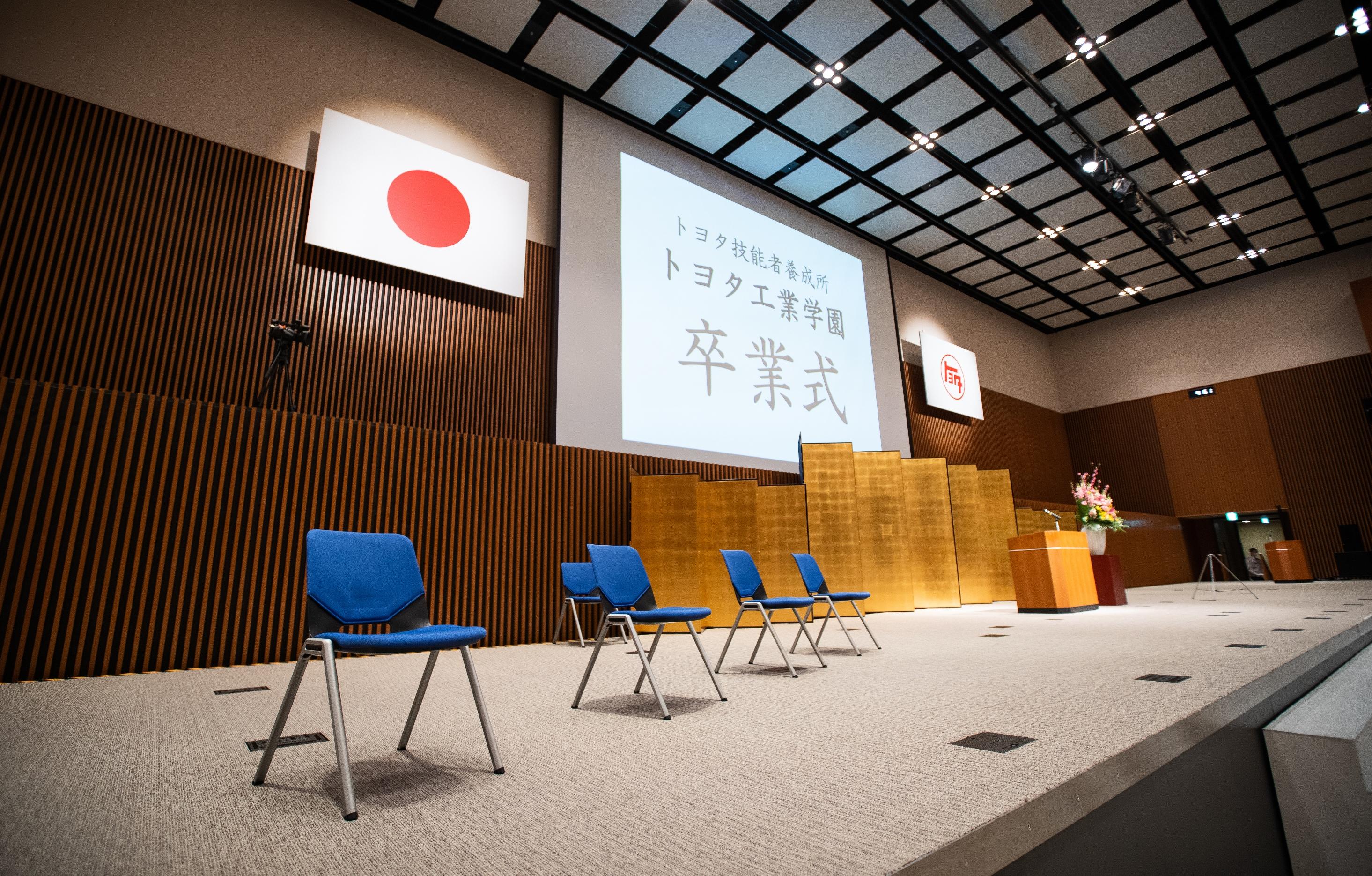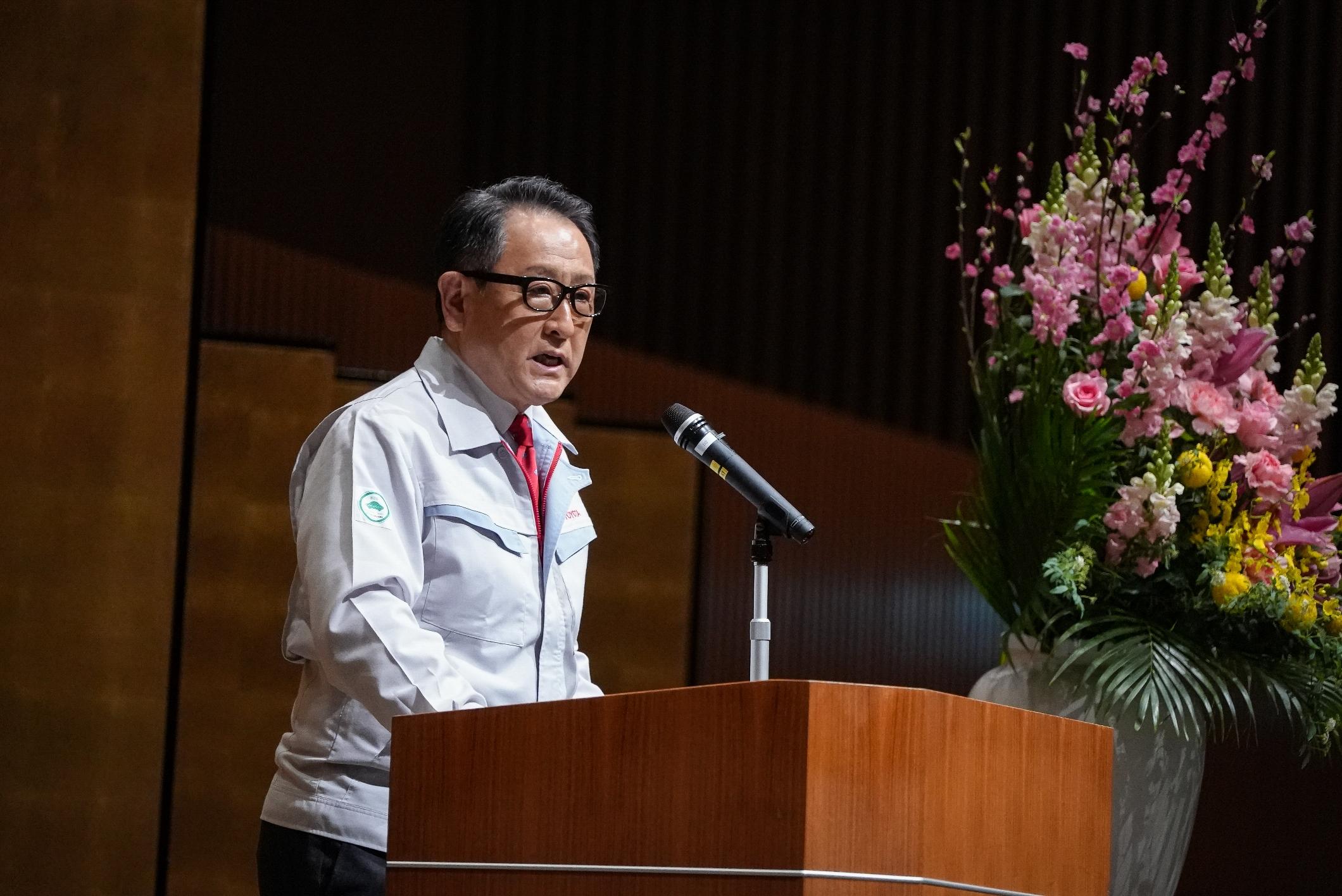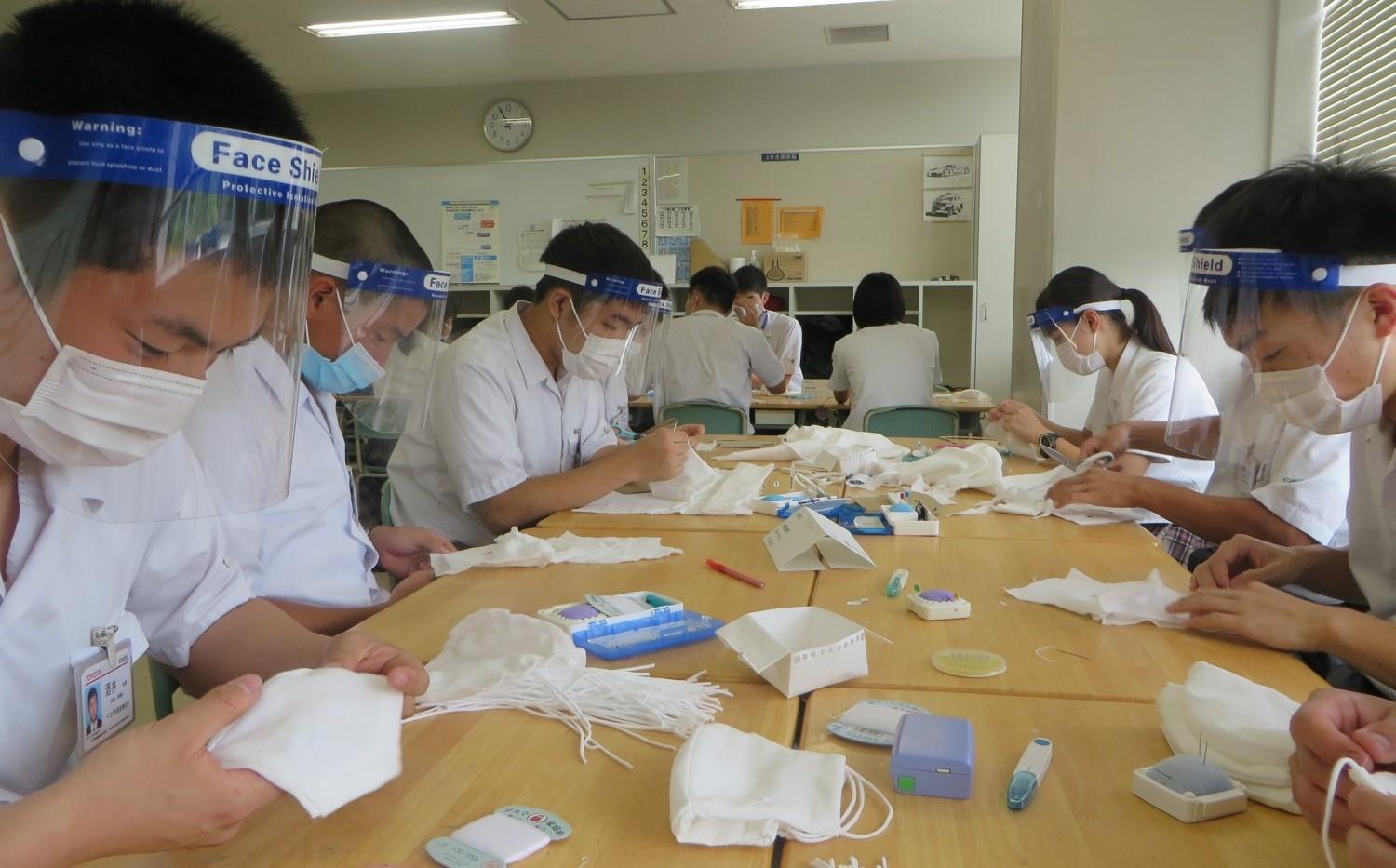
Academy graduates experienced a very different school life from what they had initially envisioned, due to COVID-19. How did the students respond and what did they learn?

Spring is coming soon. And in keeping with the season, like most schools in Japan, in early spring Toyota holds the annual graduation ceremony for its in-house technical training school, the Toyota Technical Skills Academy.
For those who are not familiar with the Academy, it was established in 1938, just one year after the establishment of Toyota Motor Corporation, with the aim to cultivate professional skills of monozukuri.
Representing Toyota’s corporate principle of "manufacturing is about developing people," it provides a three-year program in high school and a one-year technical program for technical high school graduates.
Once entering the academy, students are under employment of Toyota, and the graduates are expected to lead the genba of Toyota plants in their future career. This year, about 250 students graduated from the Academy.
In fact, there is also a “sister school” outside of Japan. In 2007, the Toyota Technical Training Institute was established in Bangalore, India. It offers Indian middle-school graduates, who have the capacity but face difficulty in continuing education because of economic or other reasons, a chance to learn specialized manufacturing skills.
Returning to the Academy in Japan, the graduation ceremony was held this year on February 18, though greatly altered this time due to COVID-19.

In order to observe social distancing, attendance was limited to the graduates and instructors. As the Academy is a boarding school, the students live away from home, and for the first time ever, the ceremony was webcast to their parents, who had been looking forward to being there in person for this proud moment for their children.
Instead of singing the national anthem and the company song, which was the ordinary before, the attendance silently listened to them. While in the past, the tradition has been that all the graduates say the “Five Main Principles of Toyoda” in a thunderous chorus, this year it was recited by two representatives of the student body.
Not only has the graduation ceremony changed, but our whole way of life has been dramatically altered by COVID-19, and so this last year has been very different from the school life the students had envisioned.
Under such circumstances, the students came to rely upon the “YOU perspective”, an attitude to take action for others, that Akio has spoken about repeatedly to employees. The following is from the speech he gave at the graduation ceremony:

Akio:
Your daily lives, including events and extracurricular activities, were severely restricted, and you were unable to train in the same way as in the past. However, you all thought hard about what you could do under the current circumstances and took action.
The graduates have attained the strength to overcome such unprecedented hardships, and kindness towards one another. You learned both these lessons, and grew.
Please be people who show a lot of strength and kindness. Do your very best to bring smiles and happiness to many people.
What kind of actions did the students take in this unprecedented situation, and what did they learn from it?
Creating an Opportunity for Learning
Due to the spread of COVID-19, off-campus trainings for the third-year students were cancelled in June last year. The students began to wonder if there might be something they could do in their spare time to help those in need. As the range of activities and budget were limited, they decided to work on making cloth face masks.
The project started with the idea of donating the masks given by the company to those more needy, and then making their own masks to replace them.
However, they had neither the experience nor the sewing skills to make masks. Undaunted, from scratch they began to consider the shape of the mask, how to make it, what materials to use, the cost and everything else.

According to Miyagawa who served as the project leader, “Looking back on ourselves we realized that not having a plan and leaving things to others were our weaknesses. We wanted to rid ourselves as much as possible of such weaknesses and be ready to work well in the future.”
How could high quality masks be produced quickly and at an affordable cost? They divided into teams of seven to eight people and tried to find the best way, based on the Toyota Production System (TPS).
Miyagawa’s team tackled the process of backstitching the parts that required reinforcement, which took more time than expected due to their insufficient sewing skills. They then made prototypes of running stitched and backstitched masks. It was found that just running stitching provided sufficient strength, so the specifications were updated, greatly improving productivity.
They clarified the operations to prevent making defective products and considered what processes are necessary. This is the very essence of kaizen based on TPS.
The students coordinated the donation destination of the masks themselves, giving the non-woven masks provided by the company to local medical associations, and the cloth masks provided by the government to the city hall’s Day Care Division.
According to Chikaishi, who was nervous about calling the city hall for the first time in his life, said, “I found out the destination we first considered had enough masks, so they were given to the Day Care Division whose masks were in short supply. Rather than merely doing something for self-satisfaction, I learned how important it is to be able to meet the needs of others.”
Although the students missed the opportunity for off-campus training due to COVID-19, they were able to demonstrate their strengths by creating an opportunity to learn by themselves, rather than wait to be given to them.
Fulfilled by “Thank You”
All training outside of school had also been cancelled for the Academy’s professional course students, graduates from technical high schools and the like, who were seeking to further improve their skills. Just like the students in the general course, they too considered what they could do for others. One of the activities they hit upon was weeding and cleaning local parks.
It all started when the students jogging near by the dormitory noticed weeds growing wildly in the park.
Parks are generally looked after by the senior members of the community, but due to the risk of COVID-19, they were asked to refrain from such work. Hearing that, the students decided it was up to them, the young generation, to do something, and they came up with a plan from scratch.
“We all came to the Academy to become future leaders at the genba (worksite). To lead up each activity, we wanted to ‘choose and support people who usually hesitate to step forward. We wanted to draw up a plan reflecting the actions required of us as Toyota employees, which can be put into practice even when we go outside the company," said Yoshimura, one of the coordinators for all social contribution activities.
Under normal times, for the most part, instructors design the training plans for students, so this was the first time for the students to go it alone. Naturally, they struggled at first, but eventually came up with a plan of action.
Even though it was early September, the oppressive summer heat lingered on as the students, drenched in sweat, removed every weed in the park by hand to give the children a worry-free place to play.
Many of the locals who saw the students working thanked them and offered words of gratitude. Some even brought them food and drinks.
Kato, one of the social contribution activity coordinators, said, “I could see they were smiling even though they were wearing masks. I'm really glad I did it.” Clearly, the words "thank you" had made him very happy.

All the off-campus training, academy and company events that the students had been looking forward to were cancelled, including experiencing agriculture and other industries and test driving at the test course in Shibetsu, Hokkaido.
Like other schools, extracurricular activities were also restricted, so they couldn’t leave with the results they had wished for. The same was true for Toyota plant training; students were disappointed that they couldn’t do monozukuri at the genba because production had been suspended.
Then again, starting with a blank slate, the students learned to think and act on their own.
When we are in trouble, everyone around us is also in trouble. They all learned the importance of thinking about what they could do for other people, and that they can make themselves happy by trying to bring smiles and happiness to others.

